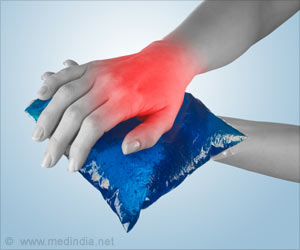Cognitive-behavioral therapy has proved to be effective individually among patients suffering from chronic pain and insomnia.

Researchers also found that sleep latency affected pain sensitivity, although this did not affect total sleep time. Age and sex also had no effect on the relationship, but it was found that psychological distress had a small but significant effect on the relationship formed. Patients reporting high problems with both insomnia and chronic pain were more than twice as likely to have reduced pain tolerance and many patients who experience sleep impairment and pain face high costs and personal difficulties.
Lead researcher Borge Sivertsen said, "While there is clearly a strong relationship between pain and sleep, such that insomnia increases both the likelihood and severity of clinical pain, but it is not clear exactly why this is so."
The study shows the need for efforts to improve sleep among patients with chronic pain and vice versa. Cognitive-behavioral therapy approaches have proved to be effective for pain problems and insomnia individually.
The study appears in PAIN.
Source-Medindia















